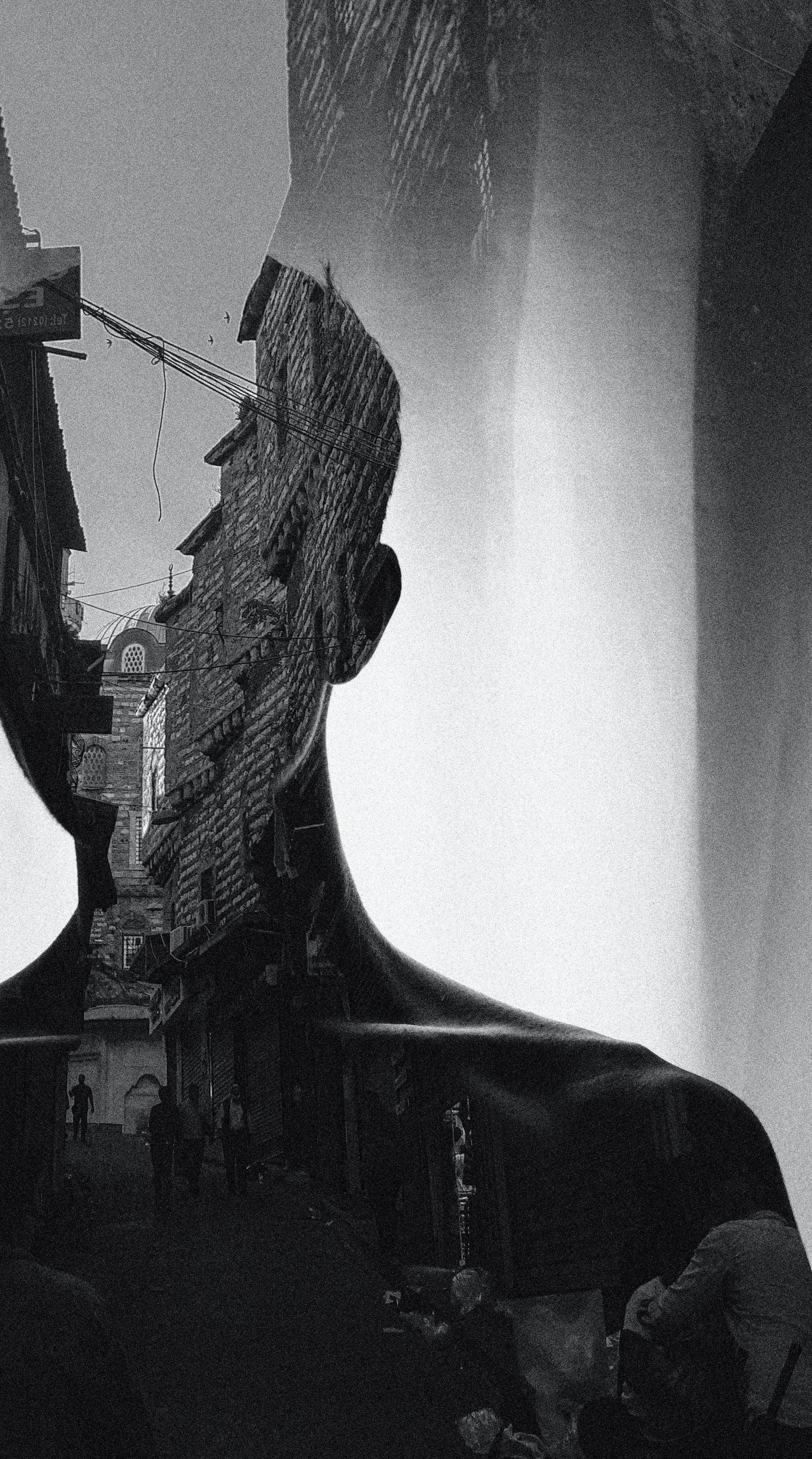GYOU AN TH OL OG Y





T he return to the normal: after 2 years of uncertainty, it’s rather nice to be back for good! To find your footing at university, to make your friends for life, to discover that sense of belonging – an exciting start to a new chapter in your lives. One of the best parts of university life is doing things that you love and spark joy in your lives. Which is exactly what the theme of this issue revolves around. ‘Anthology’ is different from most of our issues. It is G-You’s personal memoir, paying homage to the varied passions and interests of our writers and editors. We hope you enjoy our small, personal and heartfelt collection of pieces that give you a peak into our lives. We are more than excited to welcome you to Glasgow!
A huge thank you to Ana Negu ț for producing this fantastic issue! And a massive thanks to our lovely editors and talented writers, without whom this issue could not have been produced! We hope you enjoy a little slice of our lives!
 Samyukta Vidyashankar, Editor-in-Chief
Samyukta Vidyashankar, Editor-in-Chief

Samyukta Vidyashankar Convener/ Editor-in-Chief
Evan Co-EditorColley in Chief
Ana Negu ț Production Officer
Alex Ballester PR and Graphics Coordinator
Lina Leonhard Events and PR Mentor
Morgan Carpenter Travel & Lifestyle Editor
Selen Shah Politics Editor
Rochelle Chlala Campus Editor
Eliza Checkley-Mills Arts & Culture Editor
Finn Macdonald Showcase Editor



Ella Clayton - Cinema Paradiso: The story of how a boy, a model and Duran Duran managed to make a cult classic
Rhea Abraham - Half the words, same result
Mischa Watson - Burn it now!
Lina Leonhard - But their work is really good!
Selen Rana Shah -The Cost of Defined Aesthetics
Morgan Carpenter - Running up that hill - How students can address barriers to the outdoors
Martin Mullaney - Albion
Michelle Acquah - A response to The Swing by Jean Honoré Fragonard
Omar Atwan - Meet the Makers
Rochelle Chlala - Local Casanova

Alex Palmer - Human Right Act Reform: Reconstruction or Deconstruction?
Katarina Zivkovic - One small step for LGBTQ+ rights, one giant leap back!


My local cinema puts on what they like to call ‘indie viewings’, showing films that push the boat out a bit for a small town in Kent with probably an average age of 70. One night I took a chance on what they described as a small independent Irish film set in Dublin during the 80s, which at the time I only went along to see what it was like for my mum growing up there at that time. Without a doubt, it turned into what I’d say is the best coming of age movie of all time and hence the film that changed my life.
For a bit of context, Sing Street follows Conor aka ‘Cosmo’ growing up with a love for music. He forms a band and falls for the alternative girl turned model Raphina. Highs and lows with friends, foes and family along the way coupled with the difficulty of moving school and generally growing up makes for a realistic yet gripping storyline that makes you laugh, cry, laugh again and cry even more.
Sing Street was the first time I saw a raw depiction of chasing your dream while seeing the ups and downs along the way. Feeling able to relate to school trouble whilst you have these great ideas about what you’ll do when you simply get out of there. Even just the element of being able to decide in your own mind how everything turns out in the end, it adds an extra layer of relatability and frankly keeps the film light hearted without falling into cliches. It doesn’t fall into the stereotypical happy ending of a coming of age movie which is what makes it so endearing for a young adult viewing, truly feeling seen by the great writing and directing of John Carney. Don’t get me wrong, it is still mostly a happy ending but with the cost of sacrifice.
The undeniable star of the show besides the acting and plot is the stunning soundtrack. To quote Hans Zimmer ‘a good score should have a point of view all of its own’ and oh boy does sing street have that. The perfect balance of big tunes from the time (seriously, you will never have heard as much Duran Duran in a film before), and also original songs that tell the story of the characters. The classic hits act as an insight into the bands inspiration whilst also showing a respect for rock and roll and the curation of one’s own individuality. We get to see how Cosmo comes to be, how Eamon the musician masters his craft and how the close care of Brendan, the older brother, shapes Cosmo. Not only do the originals act to tell us how the characters feel but they also serve to show the development of Cosmo and his band mates in their journey. The songs start off slightly cliché, like any band’s first song, and build in complexity and skill as they learn more about each other and their musical direction. Cosmo’s older brother Brendan sums it up best; ‘Rock and Roll is a risk, you risk being ridiculed’.
No other film will ever do it like Sing Street has, striking the balance between a great story where music has added rather than taken away or overshadowed the plot. For me, I saw film as an art and as a skill for the first time by understanding how tricky this balance is to strike. Everytime I watch it, I can once again appreciate how perfectly the nail was hit on the head. For me, my adoration for this film was pinpointed to hearing the original song Up, just feeling totally understood by a film for the first time. At the time it was for the feeling of growing up and having a crush, to now still relating it to it but due to the fear of the future, wanting to follow your dreams and falling in love. It truly showed me how music isn’t just the background for a story but the vessel for it.
by Ella Clayton.
In my sophomore year of high school, my English teacher had our class do a comparative study on F. Scott Fitzgerald and Ernest Hemingway. We were to read both The Great Gatsby and The Old Man and the Sea, and then decide which writer we preferred. “Disregard the actual plot of the novel when you make your decision” she said, “just decide whose work you find more enjoyable to read.”
I read The Great Gatsby first and had a fair enough opinion of it. The characters were multidimensional, and the plot moved along at a nice pace; it was a good book. However, I was not even a quarter of the way through The Old Man and the Sea before it was clear that it was a much more enjoyable story to read. This had me rather confused, as in comparison The Old Man and the Sea has a much dryer plot compared to the lavish and dramatic story of The Great Gatsby. Yet, Hemingway’s placid tale had grasped me much quicker and much tighter than Fitzgerald’s glamorous world ever could.

I came back to class, like the rest of my peers, with my decision. I clearly preferred Hemingway. I found that the novel kept my short attention span focused, and I wasn’t glossing over certain paragraphs on a page in the same way that I did while reading Fitzgerald. Our teacher identified the key difference we faced while reading both novels and said that it all came down to distinctions between the authors’ writing styles.
She pointed out that on paper there weren’t a lot of disparities between the two authors. They were both regarded as literary greats, first gaining notoriety through the American expatriate literary community as they worked in Paris during the 1920’s. They were products of the post WWI lost generation and often centred their work around melancholic existence and tragic conclusions.
They were even said to be close friends and supporters of each other’s work. Yet the writers were known for being stylistic opposites. While Fitzgerald padded his paragraphs with flowery language and long twisting sentences, Hemingway utilised short and simple writing to get his point across to the reader.


Flowery, or overly descriptive writing, often faces criticism from modern readers, and I think the reason for this is twofold. First, in my experience I find that overly thorough and descriptive writing feels like the author is just content dumping information to the reader. This tends to take away opportunity for imaginative thought, making the read less enjoyable. Instead of Fitzgerald describing to me exactly what Gatsby’s grand home looked like down to the colour of wood polish on the stairways, I preferred the imaginative freedom I had while reading Hemingway. All the necessary tools were presented to me through his straightforward writing, but there was enough room left within his narrative for me to use my own imagination. Letting your audience do some of the work themselves is a great trick that authors can use in their stories, as it keeps the reader engaged by forcing them to fill in those purposeful gaps. In a modern world where consumption of media is at an all-time high and average attention spans are at an alltime low, keeping readers engaged by maintaining a simple and straightforward writing style is the better choice.
Secondly, the use of flowery language chock full of words from the thesaurus tends to fare badly with readers because it lessens the trust and credibility they have with the author. It was Albert Einstein who is believed to have said “if you can’t explain it to a six-year-old, you do not understand it well enough.” This idea of measuring an author’s expertise in a subject by their ability to explain it concisely has been examined in a 2005 study by psychologist, David Oppenheimer. He found that when he substituted simple text for stuffy and overly academic sounding language, participants reported that the author sounded unintelligent and under qualified on what they were writing on. “Anything that makes a text hard to read and understand, such as unnecessarily long words or complicated fonts, will lower readers’ evaluations of the text and its author,” Oppenheimer reported.
Whether you’re a diehard Fitzgerald fan and love to soak up all the fancy long winded language of the books you read, or whether you enjoy the gritty and simple words of Hemingway, the facts tend to point to a general distaste for flowery writing throughout the literary community. All in all, I agree, keep your writing short and snappy or risk losing your audience.
 by Rhea Abraham.
by Rhea Abraham.



“ In a modern world where consumption of media is at an all-time high and average attention spans are at an all-time low, keeping readers engaged by maintaining a simple and straightforward writing style is the better choice. “
Like many people, I’m a heavy user of TikTok, especially BookTok to get my book recommendations. A lot of subpar novels often get undeservedly overpromoted on this platform, which leads me to unfortunately have some disappointing reads. One such disappointment was It Ends With Us by Colleen Hoover. In wanting to see what all the fuss was about, I was subjected to one of the worst books I’ve ever read.

There were a few especially concerning elements which go unnoticed when this book is recommended to the masses. My least favourite part of the novel was the fact that the so-called “plot twist” ended up being the main male character, Ryle’s, descent into abuse. I feel this is an unacceptable way to deal with the topic of domestic violence as it is used as a cheap way to get an emotional reaction out of readers. Furthermore, the book would’ve been more successful if the unnecessary romantic subplot was removed. This often makes readers miss the point of the actual novel, ignore the conversation surrounding domestic violence, and turn it into a romance novel. The romance appears mostly in flashbacks but when Atlas, an ex from teenagerhood, returns after the female lead, Lily, has grown up, it just feels very stilted and strange to read. I feel that a lot of Colleen Hoover’s writing begins in reality, but suddenly veers off into the insane. This happened when the reader was subjected to Lily’s obsession with Ellen DeGeneres. I feel this was just bizarre - even in Ellen’s heyday, this would’ve been an odd celebrity to fixate on. But this, again, was just another highly unnecessary plot point to include.

Then, there is the emotional manipulation conducted by Colleen Hoover upon her readers. As I mentioned before, readers often mis-market this novel as a love story when the romance should really take a backseat and we should be focusing on Lily’s journey. I feel this cannot be put solely on the reader when the author herself doesn’t really contend with Ryle’s abusive traits that are present from the beginning of the novel. The first time we are introduced to him, he violently kicks a chair, and not long after he begins to beg Lily for sex, even going so far as to knock on 29 doors to find her. Hoover romanticises this, making the reader think this is Lily’s Prince Charming when in fact, it’s just stalking. It becomes alarming when young women then quote this on their TikToks, framing it as something they wish someone would do for them, without recognising that this is not acceptable behaviour. I feel the novel would’ve been far more enjoyable if the author condemned Ryle for his actions, rather than giving him a happy ending.
Because of the new trend of TikTok, often if a book makes someone cry, or is read in one sitting, it is deemed as quality. I think that the simpler the writing, the easier it is to consume the book quickly. This is a tactic used by authors to inflate readability and sell more books, as well as have readers emphasise the fact that they cried. Authors that make their money solely on emotional books often use a formula in order to achieve this and increase their marketability.
Ultimately, don’t make the same mistake I did. If a book is being hyped up, most of the time it doesn’t live up to people’s expectations. It Ends With Us is one of the only books I wish I had never wasted my time or money on. I now consider myself to be an avid Colleen Hoover hater, and I’ll never read another one of her books.
by Mischa Watson.
“Authors that make their money solely on emotional books often use a formula in order to achieve this and increase their marketability.“
Disclaimer: The transphobic hate that JKR actively campaigns on a day to day basis has real life consequences for a lot of people in the trans community and those people are the ones whose opinions should be held above all others when it comes to discussing whether or not her work should still be enjoyed. In this article I hope to offer a few thoughts that I have had on this topic, but mostly hope to inspire some of your own thoughts and research into implicit bias.
Somehow, there seems to be a never-ending stream of art created by controversial people. From the yet to be released Amsterdam, a movie directed by a man who admitted to sexually assaulting his niece, to the adaptation of Where the Crawdads Sing, a book whose author is wanted for questioning for a murder in Zambia. But there is probably no series with a controversial author as omnipresent as Harry Potter.
I’ve grown up rereading the Harry Potter books over and over and the series has had an undeniable influence on my personality and character. So when I first read JKR’s hateful and transphobic rhetoric on Twitter I was shocked that I had been unknowingly supporting someone who had such harmful views. I was pretty conflicted, should I stop reading Harry Potter? Could I be a fan without supporting JKR? I’ve read opinions from all kinds of people, and some say that the good outweighs the bad, that a tale about the power of love and friendship is more powerful than the hate spewed by its maker. But can a story really be separate enough from its creator to still contain an overall positive message?

If we take a closer look at the world of Harry Potter, it becomes clear that JKR has some aggressive biases that impact her storytelling. Let’s use Rita Skeeter as an example. One of the antagonists of the series who is manipulative and sneaky and described as having mannish hands and a heavy-jawed face. These are stereotypes she has assigned trans women, as they are one of the things she rants about in a transphobic article posted to her website. Another example in the world are the goblins: greedy, cruel bankers, who are described as small, wrinkly creatures with long hooked noses. A description, that even if it was without intent, is an anti-Semitic caricature. The truth is that we’ve allowed this woman to freely write books full of harmful stereotypes.

However, I do believe we can—to a certain extent—separate the work from the author. I don’t think we should pretend that the books are perfect and that they are on a different plane of existence to their creator. Obviously, whoever wrote the books had a significant influence on them, but the characters and the story of Harry Potter belong just as much to the fans as they do to the author. If JKR can tweet out random statements about the books and expect them to be considered canon, so can fans. I’ve seen fans take these beloved characters and write them into stories of their own, where the characters are queer, non-binary, trans, and people of colour. I’ve also seen Harry Potter help fans figure out who they are or inspire them to stand up to a bully. I think that a series that has inspired so many people to be kinder, be creative, be passionate, and stand up for themselves might deserve to have a place in our society. Nothing exists in a vacuum, and it would be disingenuous to pretend Harry Potter has had no influence on its millions of fans.
There is also the question of even if I acknowledge her problematic nature as both an author and a person, can I consume her creation without supporting her? It should be easy to refrain from supporting JKR financially; simply don’t buy official merchandise and buy books second-hand. But even if we don’t give her financial support, interacting with her online is still a form of support. Following official pages and interacting with content all serves to fuel the fire of Harry Potter, keeping both book and creator relevant. Giving this up seems relatively easy as well, but for some people, being a part of the online fan community is just as important as enjoying the actual books. On the other hand, it is often this fan community that is the most critical of JKR. The fan world of Harry Potter has morphed into something JKR has no control over, and is overall a more welcoming and inclusive community than she would probably like it to be. And while supporting fan creations does fuel the world of Harry Potter, it also fuels those creators who deserve recognition for their work in their own right.
So to answer the question, can we enjoy art by problematic creators? I honestly still don’t know. And I don’t think I am the one who should make this judgment. One person can’t possibly be the absolute authority on any subject, especially one person who is not directly affected by the hate JKR actively campaigns for. It is true that I don’t enjoy Harry Potter as much as I used to, the hateful context of the story and stereotypes are impossible to ignore. But I also haven’t stopped my yearly Thanksgiving reread of the series. But maybe I should just change my tradition to Percy Jackson…
by Lina Leonhard.
“If JKR can tweet out random statements about the books and expect them to be considered canon, so can fans. I’ve seen fans take these beloved characters and write them into stories of their own, where the characters are queer, non-binary, trans, and people of colour. “





Ever since my mum entrusted me with the power to buy my own clothes, I have loved following fashion trends and aesthetics. Although I look back at the photos of 13-year-old me with backcombed jet-black hair, black eyeliner, wearing a Black Veil Brides t-shirt and cringe, at the time I loved it. I knew it was a phase – but I didn’t care, because I didn’t feel pressure to embody my fashion tastes in every facet of my life or make it into a personality trait. I was just 13 and having fun.
Now as an adult I don’t feel as though I have that same freedom because I feel pressure for my clothing choices to cohere with ‘my personal brand’ and represent my entire lifestyle. A lot of this stems from the rise in microtrends such as the ‘clean girl’ aesthetic or ‘cottage core’. These trends bleed into almost every creative sphere; from fashion to beauty to interior design. Ultimately demanding your creative choices become a rigidly defined aesthetic that dictates your entire lifestyle.
Some of these niche aesthetics, such as the popular ‘clear girl’ look, often focus on aspiring to develop ‘healthy habits’ for self-improvement. However, there’s a thin line between aspirational and exhausting, unattainable standards. The reality of a lot of these trends is that they target women and make them feel inadequate to sell a lifestyle that cannot be maintained because it is expensive, unrealistic, and fake. They perpetuate the idea that women cannot make mistakes, be messy or even have a fucking lie in. Then, when you finally hate yourself because you don’t have a 5-am morning routine, they sell you matcha from white-owned brands, neutral-coloured clothing that boasts sustainability – but guess what, it’s not sustainable if you’re constantly buying more and a planner to plan your day to the very hour, because how could you possibly have your shit together if you don’t have 5 planners that all do the same thing?
One of the harms microtrends create is the impact they have on one’s sense of self. Healthline defines sense of self as ‘your perception of the collection of characteristics that define you’. This might be your likes and dislikes, belief systems, hobbies, or the life decisions you make for yourself.

If you’re constantly being told what your interests, decisions, and priorities should be if you like old-fashioned rural-themed décor then it becomes difficult to determine what matters to you. Decision-making based on aesthetics is harmful because whilst aesthetics can change, our decisions stay with us. Life impacting decisions should be based on the values that matter to us, not our favourite colour schemes. However, it’s difficult to determine what is a value ingrained in our sense of self or a taught value from a lifestyle trend.
Additionally, microtrends often commodify and claim beauty practices that are popular amongst other cultures without giving these cultures credit. The ‘clean girl’ aesthetic is an example of this, associated with slicked-back hair, gold jewellery and minimal dewy makeup – many have pointed out that this has been a popular beauty trend amongst black and brown women for decades. Now an aesthetic adopted by white women, what used to be criticised as being a ‘cheap’ or ‘ghetto’ appearance is now associated with class and credited to white women.
Despite the harmful impacts of microtrends we don’t engage with the dialogue around how everyone who uses social media individually plays a part in the problem. Even when we discuss how social media is fake and promotes unattainable beauty standards, we don’t stop buying into the fakery, we don’t admit that we also perpetuate it by creating a facade of our lives that isn’t real, we completely alleviate ourselves of blame and responsibility by blaming corporations and TikTok famous 15 years olds, because no one wants to admit that their aesthetic gym sets are self-destructive. Instead, we admit there’s a problem and do nothing to combat it by continuing to buy into trends that are destroying the planet and creating content that perpetuates unsustainable standards to make our friends and family feel inadequate in their own lives. Whilst I understand that my measly following is limited in the harm it causes, I know that I’m contributing to a societal harm bigger than myself. Yet I continue to create that harm not because I’m a malicious person, but because in reality I’ve been made to feel inadequate and have been told to solve that feeling through consumerism to achieve an aesthetic.
by Selen Rana Shah.

“Takin’ a wee break?” Asked a friendly Scottish woman, far more chipper than my friends and I, sitting drenched in sweat on a rocky outcrop about halfway up Duncolm. We’d plopped down less than a meter away from the trail, kicked off our shoes, and started inhaling the sandwiches we’d packed. The woman, noticing our group’s discarded boots and trainers, smiled kindly at us:
“They’re never quite spot-on with the bog factor, are they?” We’d all laughed, partly remorseful for our soaked feet and partly comforted at the thought that this woman, with her trekking poles (were we supposed to have those?) and shiny waterproof boots, had been where we were.
Our hike’s setback was due to a common feature in Scotland: rain, and its lasting effects. We’d relied on a website that rated different aspects of trails, including their bog factor (the amount of sitting water and mud you’d have to plod through if there’d been rain recently.)
Weather is one of many concrete obstacles Scotland’s residents face when getting outdoors. There are also financial, social, and physiological concerns that keep people off the trails. My friends and I all had an interest in hiking and at least some experience with outdoor activities before then. Our motley crew also included one long term UK resident who warned us that the bogs, and the hill itself, could pose a threat to our toes and our morale. Without realistic expectations, and preparing with our fastest drying socks, our soggy tale would have been quite miserable, and probably put us off hiking for good.
The reality is even without the ideal gear and perfect conditions, we were still far more privileged than the droves of people who are systematically unable to reap the benefits of time outdoors. Outdoor activities in Scotland are simply out of reach for the nation’s most disenfranchised populations: those who are financially unstable, racial minorities, the displaced, and those lacking experience or knowledge of the outdoors. A report by the James Hutton Institute spanning 2014-2016 highlights this trend that continues today in a Covid-influenced hill-scape, with people of color, residents in Scotland’s most deprived areas, and people with a disability least able to participate in weekly outdoor recreation.
These groups, to whom “bagging Munros” is a wealthy, white practice, see outdoor recreation for its demanding cost of entry: the price of gear and transportation, the physical risks and requirements, and the lack of social support from people inside and out of the hill walking communities.
While the situation seems grim, there are a few steps students are able to take toward inclusion. First, while it can seem impossible as a student to organize transportation and collect the requisite gear, there are a few ways to make it cheaper (and even free.) For transportation, get a free bus pass if you’re under 22! The bus system connects you with nearly any trail you could want to take a crack at. For gear, borrow things like shoes and rain jackets from friends of the same size, or get on Facebook marketplace to take advantage of secondhand deals. Know that for most trails closest to Glasgow, you will not need things like trekking poles or boots suited to ice. Solid footwear (water resistance is important no matter the time of year), layers that you already have in your wardrobe, and more water and snacks than you think you’ll consume are all the essentials you need. You can also join the University’s own Hill Walking society to get on board organized trips and connect with kind gear lenders.
Finally, for students to begin addressing the socio-cultural exclusion factors, it’s essential to be thoughtful and inclusive. If you have experience outdoors or are privileged enough to find yourself outside of one of the groups discussed above, reach out to those that aren’t in the same position. Making your peers feel welcome in the outdoors is as simple as making them feel safe. Take away the intimidation factor, share gear, and prioritise accessible hikes. If you are in a group with less access to the outdoors or are new to Scotland, reach out to the people involved in activities that pique your interest. As intimidating as it can seem, you’re likely to find a welcoming community that’ll be more than happy to walk along with you (and even share a trail sandwich.)
Be like the kind woman who made my friends and me feel better about being rookies, or have the courage to trust that you’ll find people like her on your way up Scotland’s hills.
I nside her home, with the radiscreen crackling softly in the background, Annabelle Christopher inspected her helmet, carefully studying its inscrutable glass visage.
Outside her window, the bright green beaches and violet waters lay still beneath an artificial sky. Only once had Annabelle caught a glimpse of the real sky - not the sky as it appeared, shining a tempered blue, with the faint hint of dusk on the horizon, but the celestial tapestry of indigo and vermilion hidden behind an array of cameras and filters - ‘the lights’, as they were known.
‘My first day as a diver,’ she whispered with quiet conviction, returning to the helmet. ‘It will work.’

She removed its filter, dutifully crafted to replace the brilliant purple waters of the local seas with a more familiar blue. She felt a sudden urge to go for a walk.
As she left, she scowled at the wilted grass outside, another failure of the abortive ‘regrowing project’, and started off into town.
A few paces from her house stood a sign welcoming any visitors, few though there were, to the great new land of Albion.
She remembered, vaguely, a time when her home of fifteen years had been known by the more clinical name of K2-18b. But the government of the day had liked Albion, so Albion it became.
Through our glorious past we shall forge our great nation’s future. The slogan came to her in an instant, echoing in her mind as it had years ago, when even a journey of over one hundred light years had failed to mollify the booming speech of the Prime Minister, as it crept scratchily from the radiscreen, each syllable’s transmission a victory of its own. She remembered feeling proud to be one of the first. She remembered feeling lucky.
Behind her, the rusted gate fell with from its hinges with a pathetic clatter.
‘Shit,’ she breathed.
Rounding the corner, a crisp southerly wind caught her unawares, streaking her boots with rich emerald sand. The air had a peculiar quality to it that day, and she wondered what words she might use to describe it, were she ever to write a memoir, as she had often contemplated, of her time on Albion. Smiling wistfully, she shook her head. As she understood it, the old country seemed to have little interest in the colonists, save for their usefulness as a political tool to be clumsily brandished by bureaucrats secure in the assurance that Albion was far, far away and that they, of course, would never have to set foot on it.
In the town square, she came upon the statues of the heroes of the past, each worth several thousands, and each mercilessly vandalised. And not even the most officious servant of the bureau had bothered to clean it off.
What, they must have thought bitterly, is the point? The money has run out, the lights go out tonight, leaving us alone, like random pieces of flotsam, drifting into an unknown reality.
Presently, she came upon the grim facade of the Golden Lion. The pub’s entranceway, methodically recreated as it once existed on Earth, thrust itself obstinately into the street, an emphatic reminder to any passerby of its continued existence.
Its patrons fell near-exclusively into two groups. The first consisted of those newly arrived on Albion, who had not yet sampled the pub’s foul, neglected toilets, nor its equally rancid beers, which, after having been transported several light years, the local scientific contingent frequently speculated could hardly be described as alcoholic anymore. The second group, it only followed, were those that simply paid no mind to what could charitably be described as the Golden Lion’s unfortunate shortcomings – the melancholy old men with weary eyes, many of whom had been working in the harbours since colonisation began, who overlooked their dank, fetid surroundings and moribund drinks, as they had done for many years.
Today, however, with the lights mere hours from being shut off, the pub was busier. Many more than she expected sat, wanting, she supposed, to experience for one last time the macabre facsimile of prestige, of home, which had been carefully and expensively erected for them. The orange glow of manufactured sunlight, which streamed sporadically through the filthy windows, hit her eyes just then. Feeling them prick with tears, she turned on her heel and hurried back towards the harbour.
With her diving outfit in hand, she somewhat awkwardly accepted the compact, handheld mining equipment from Frederick, the grinning harbour master.
Behind his practised affability, however, she could see in his features the same anxiety gripping the rest of the populace. She concluded that he would soon be in the Golden Lion.
Squinting at the helmet before Frederick absentmindedly tossed it over her head, she could still just make out the words, once standard issue on all Albion diving-wear, that she had tried so hard to remove:
Through our glorious past we shall forge our great nation’s future.

Aged and worn, its letters barely readable, the writing disappeared, along with the helmet and the rest of Annabelle, beneath the cold violet waves. Angelic and poised, she adjusted her equipment for a final time and was gone.
 by Martin Mullaney.
by Martin Mullaney.
“What, they must have thought bitterly, is the point? The money has run out, the lights go out tonight, leaving us alone, like random pieces of flotsam, drifting into an unknown reality.“
 by Michelle Acquah.
by Michelle Acquah.

Amerie loved the rush she got from being that high up. She loved the thrill she felt. She was petrified each and every time she felt the pressure on the rope, and her doting husband’s laboured breathing at each mighty pull (goodness gracious, she wasn’t that heavy), but she loved it. She especially enjoyed the fact that the question of how far she could swing had a different answer each time. It was unpredictable and that’s what made it exciting; her husband could do with some spontaneity in his personality.
She didn’t know if she would flip over and crack her skull open on a rock in the brush below, or if she would fly from her seat into a tree and find her neck gripped tightly by a meaty vine till she turned purple and her feet stopped thrashing in the leaves. Either way, she knew the shock and trauma would be too much for her husband. His poor heart wouldn’t be able to take it and he’d die instantly from a broken heart. She was absolutely sure of that.
She loved being loved unconditionally. Sometimes, she even loved her husband in return. Every so often she’d become overwhelmed with fondness for this sweet little man, but then it would disappear in the next moment, and he would go back to being nothing but her loyal and smitten attention-giver. She had always been selfish with her love. It sounded horrible, but it was all part of the thrill of her life.
A result of her brazen pursuit of fun was clearly demonstrated in this moment. There were currently two people in her presence that she had to continuously worry about. Her husband, and her carriage driver who was currently hidden beneath the statue of Cupid. Carriage boy had his ugly pinched face staring up into her billowing layered skirt as she flew through the air. Naturally, this was unbeknownst to her husband.
The possibility of getting caught fuelled her excitement. Only a little though, because there were no real consequences if they got caught. Carriage boy would be out of a job and her husband would try harder than he already was to make her love him always, instead of sometimes. Irritating. It was pathetic watching him bend over backwards. A minor inconvenience for the price of fun, nonetheless. Cupid giggled at how silly it all was. She bet he thought it was all his grand idea. How stupid of him. Obviously, she was the master orchestrator. Everything that happened to her was of her own hand.
She suddenly felt a sharp pang of annoyance at both of her pawns. They were interrupting her precious time with her true lover – her garden. She had named her garden Jeanne. Jeanne was painfully gorgeous. She had thick curly green vines for hair and luscious green trees and bushes for skin. She also had a splatter of barks and branches for freckles all over her countenance, and was adorned in large bright peonies, tulips and roses. She was nature’s embodiment of Amerie. They both shrouded their harsh natures in striking beauty. That’s what made Jeanne the peak of thrill - deceit and danger.
Jeanne’s pretty flowers had thorns well hidden in her hedges, and Amerie’s rather condescending tone was accompanied by a heart-melting smile. Jeanne’s sharp, skull-splitting rocks were covered in the softest of mosses, and Amerie’s manipulation was shrouded in a light kiss on the cheek. They were made for each other. Sometimes Jeanne would slip up and show her true colours. Her breath would be too humid. The same would happen to Amerie. Occasionally, her words would bite too hard and too deep, and her husband would give her a pitiful look of hurt. Amerie and Jeanne were one and the same. Maybe Cupid did get something right after all.
Each time Amerie was at the highest point the swing could take her, she felt complete bliss. The sun shone on her like a spotlight. She closed her eyes and took in Jeanne’s essence. How perfect. Then, she’d come swinging back down, hard and fast towards her minions. The feeling of coming down from that high and swinging back up again felt like drinking a delicious bowl of soup, then biting into a bone. The possibility of another bone would always be at the back of your mind with each spoon you drank. The soup would still be lovely, but the mindless bliss of slurping it down would be gone forever. She didn’t like that.
She swung up, one last time, then screamed into the bright, peeking gap in the canopy of trees, “Stop!”
Her carriage boy scurried stealthily away, and her back bumped into her husband’s loving embrace.

It was over.
She felt sick.
Her day was ruined.

Some say being in a Society is key to having the ‘ultimate university experience’, as it is a way to find an escape from the anxiety and stress your coursework brings. However, they can be an added stress to those managing them and so, is it worth it? Could it be that fun? To delve deeper into this, I decided to interview 3 society figureheads about their experiences. In this piece you will explore the journeys of GU Amnesty’s previous chair Lyall Tighe, the Taylor Swift Society’s president Lina Leonhard and the WiS’ previous chair Holly Hourston that led them to their respective leadership positions.

University degrees are notorious for being difficult and overwhelming, yet societies bring an escape from that and allow you to be further involved in your passions.
So, some people like Lyall, who love activism, found the “diversity of human rights causes” appealing to them most and felt like GU Amnesty would be an environment where they could thrive. Similarly, someone like Holly, found the environment in which to follow her passions mattered and so joined WiS because of the “welcoming and encouraging” committee of the society who stood out to her as role models. This welcoming environment of like-minded peers helped her work on matters she cared about and inspired her to take on a leadership role. But what if someone struggles to find a society where they feel like they belong. What would their options be?
Lina’s path to leadership is more unorthodox. As a “huge Taylor Swift fan”, when she heard about the founding of a Taylor Swift society, she thought it would be something “perfect” to do and so became a member of the society’s first committee. She, like Lyall, progressed through the committee into eventually presiding over the society. What is common among all these leaders is their love and passion for the things they do. It was those two factors that led all of them to join a committee and get more involved. We are always told by our lecturers that the key to not being overwhelmed is to manage our time wisely. Some people struggle a lot to do that and so must make sacrifices and choose between societies and academia. Holly, for example, felt it was important to be involved and to “accept that something was going to give” because she believed that sometimes it can be difficult to “have it all”. However, someone like Lyall who felt overwhelmed with having to “work on every issue ever” felt eventual burnout. They found that the work they were doing, although great, was overwhelming and so at times did not perform their best. But, having their committee to fall back on, communicating with them, and having mutual understanding helped them to persevere.
Safe to say everyone’s experience is different, however undoubtedly maintaining balance between societies and university is no easy task. Sometimes, if you, like Lina “always try to prioritise uni work over the society,” you will not be able to attend events fully nor enjoy them as much as everyone else. It can be hard to fully commit to both societies and university.
However, it seems from the leaders that having a committee to uplift you and share your work is what maximises the potential of a society and makes it run smoothly. Sharing the burdens of this balance is the key secret to being able to manage both areas of university life. Lots of people worry about joining societies from factors like worrying about fitting in. It can be a daunting experience to choose to go to a society. When asked to give advice to those who struggle, Holly and Lina agreed that the best way to choose a society is through Freshers’ Week. The Freshers’ Fayre has a plethora of societies present and Holly strongly believes that “there is a society for everyone” and that you just must look for it. The SRC website is a great starting point for example. However, what about attending the events of those societies? Lina seems to believe the best way to do that is by going with a friend because “everything is easier with a buddy” and having someone you know around could help you relax more and hence, have more fun.
Holly, Lina and Lyall all seemed to have a different experience with their society, however, they all seem to share the love, passion, and commitment to their society. Through this article, it is clear the most important part of being in a society is the welcoming environment and the support system it gives. That is what helped all these leaders to balance their time and put the society in the trust of others, which ultimately influenced their university experience and made it much better.
by Omar Atwan.
“Through this article, it is clear the most important part of being in a society is the welcoming environment and the support system it gives. “
E veryone loves to be in love. Yet, the process can be daunting, especially when there can be so many unknown factors. While this article cannot guarantee love per se, I am going to try my best to be the closest thing to a checklist for smooth dating as I can, and please do not @ me if it doesn’t work :). Also, for those of you in the comments saying that you don’t need to find someone, this isn’t for you, please keep scrolling.
All romantic excursions start with having to ‘Find the Right Person.’ Despite my thorough re search, all of these require quite high levels of socialisation, so to all my fellow socially anxious, I apologise.
I doubt that it comes to anyone’s surprise that Tinder is always a viable option, but just make sure to not be overly hasty with the swipe options.
Additionally, speed dating options exist almost everywhere and trust me Glasgow is no ex ception to that rule. Worst case scenario, you have a terrible night with a couple drinks in you which doesn’t sound all that bad. Ditch or Date in Glasgow is a website which has dates, times, and places of speed dating events so make sure to keep an eye out!
Finally, while they say when you stop looking, you’ll find the one, I think the best initiative is an active one. Friends of friends and university social events are some of the best instants to not only get to know new people, but maybe develop a bit of cheeky chemistry with someone.










After finding that aforementioned chemistry, a date would be expected, and Glasgow can cer tainly account for all different vibes.
Fore Play Crazy Golf is not only a suitable name for a first date, but the combination of cra zy golf and drinks should lighten the atmosphere significantly. There’s also food enough to satisfy if the competition gets you and your date riled up.
Super Bario has a large arcade game selection and some casual drink options. If you decide that you both want to let your inner kids out and have some video game fun, this is the perfect spot. Also, the atmosphere is super chill and quite relaxed which can create a great vibe to get to know each other.
For foodies, Bibimbap is a great way to delve into Korean food, with Korean BBQ being one of the main spectacles. The shared and engaging ways of eating can help cut the tension and what’s more romantic than a collaborative effort for your dinner.
A more casual coffee date 1841 is the place to go. It’s super cozy but posh enough to im press, with a great coffee menu so you won’t be short on options in case there’s nothing else to talk about other than the coffee options. Additionally, depending on how the date goes, it’s in a great location to either continue or cut the date short.
NOTICE: ADVERTISEMENT INCOMING. My family and I run Comet Pieces Café which is a cute little café on the way to Murano which sells Lebanese food as well as a wide selection of rolls/breakfast/platters. Nothing tops a chatty Arab man and a great selection of food for breaking the ice on a first date. If you don’t choose this option, fair dues but also come see me after :).
The final thing on the checklist would be new ideas for dates. tions, which lowkey undermines the whole point of this article but we move. However, there is a clear answer to any way forward if the connection moves past the initial talking stage. Look at the person, remember their interests, and the rest will follow easily enough. If the person loves movies, cinema it is. The person may love reading, there are little tucked away libraries across Glasgow that would be perfect. Thus, while I have written this with all your love lives in mind, you are your own best wingman. May you all find the ones you’re looking for and be annoyingly cute with them forever, and I mean that sincerely as the wingman you never knew you needed.
 by Rochelle Chlala.
by Rochelle Chlala.



“
If it feels as if the structures and normalities of politics are breaking down around us, it’s because they are.
The British Constitution is a strange beast smushed together over several hundred years from gentlemen’s agreements and precedent, quite a bit of actual legislation, and at least one letter to the Times newspaper (no, really). You certainly don’t get that in America.
It is in this sense that we are unusual in the world: only four other states rely on uncodified constitutions. In theory any governing party could rewrite ours with a simple parliamentary majority, and from time to time many do add and subtract bits. Importantly for this article, that’s what the Tories are about to do.
The Bill of Rights Bill (catchy, right?) is currently making its way through the various stages of the legislative process, aiming to repeal and replace the Human Rights Act 1998. Now, the ‘98 Act made the European Convention on Human Rights enforceable domestically within UK courts. The new bill keeps these same Convention rights in place, but importantly makes some changes on the thresholds claimants must be able to achieve before making a claim, and how the courts interpret those provisions. Hopefully you’re still with me here.
Underlying the premise of the new bill is the Conservative Party’s current determination to “do something about those pesky courts”, as they occasionally throw the government a ruling that “no, you can’t just deport people before they have a chance to appeal against the decision”, or “no [government minister], you don’t have the power to implement that through secondary legislation”. This is obviously a problem if you’re a sort-of parliamentary Cruella de Vil. Not having a coat made out of dead puppies, or in this case, being able to deport plane-loads of vulnerable people regardless of appeals just won’t do!, especially if it generates a handful of bad newspaper headlines.
This isn’t great news for anyone who likes their government to have just a little bit of accountability. Judicial Review is one of the only mechanisms available to meaningfully challenge or test some decisions, and weakening the grounds on which the public are able to bring cases against legislative incompatibility with human rights is certainly a large step backwards.
As I write this, the current Attorney General Suella Braverman takes a rather different view, saying the Bill is “a national priority”, as the European Court of Human Rights’ ‘interventionist approach on rights issues potentially jeopardised democracy.”. On the other hand, the Law Society aren’t particularly impressed, stating that the old Act “strikes the right balance between the democratic powers of the executive, parliament and the courts” and that they “do not believe there is a case for the sweeping reforms proposed.”
If it feels as if the structures and normalities of politics are breaking down around us, it’s because they are. The Johnson premiership has ridden roughshod over several basic constitutional principles - the transfer of power after he could clearly no longer command the confidence of his party, the misleading of the Queen to prorogue parliament to his own ends. These are all deeply unnerving– the lack of consequences that followed each of them even more so. Now we may face a government increasingly free of judicial restraint.
In this modern age, can it be right for a major political party, perfectly content for constitutional norms to be broken by its own leadership, to further degrade the standards of accountability it is to be held to? There are practically no mechanisms allowing for the reining-in of a government midterm, especially one with a large majority. Instead, the ruling party are effectively allowed to do whatever they like, with only the promise of the ballot box at the end of a five-year term to either remove them or retain them in power. This is especially dangerous to already vulnerable groups, who are usually only a small sector of society, often concentrated into a few constituencies, and so have little punching power on polling day. If a week is a long time in politics, then five years, or several successive five-year terms is an interminable wait for those that simply cannot afford to do so. If you’re under threat of being bundled into a flight to Rwanda, waiting three years on the off-chance that another party may come into power is not a wonderful prospect. Strengthening peoples’ rights the new Bill of Rights does not.
byAlex Palmer.It surprises no one when a US-president stresses the role the US wants to play in spreading liberal values across the globe. Last year, Biden released the memorandum Advancing the Human Rights of LGBTQI Persons Across the World, calling on US agencies globally to promote and protect LGBTQ+ people’s rights, fight criminalisation and abuse by foreign governments, and support LGBTQ+ refugees. He highlighted the US’ role as a leading example in the global fight for LGBTQ+ rights and against discrimination and intolerance. The memorandum plays into the narrative that Western countries such as the US have largely overcome homophobia and transphobia and that LGBTQ+ individuals enjoy full legal equality.
This narrative is advanced even by some within the LGBTQ+ community. Recently, The Atlantic columnist James Kirchick, who himself identifies as gay, published an article criticising and mocking modern American LGBTQ+ activism and arguing that structural discrimination against LGBTQ+ people has been overcome in the US. However, statistics show that disparities in mental health, socioeconomic status, and employment opportunities between cis/straight and LGBTQ+ people persist in countries such as the US which portray themselves as champions of equal rights. The American Psychological Association found that transgender people are at particular risk of employment discrimination, with over 25% of transgender individuals having lost a job in the past due to discrimination against their gender identity. It also reported that gay and bisexual men under 44 have a five to ten percentage point higher chance of living at or below poverty-level compared to straight men.
The UK government, which similarly regards itself as a leader in the fight for LGBTQ+ rights, had planned its first global LGBTQ+ conference for earlier this year, which would have hosted debates on how to combat discrimination against LGBTQ+ people globally. However, the conference was cancelled after boycotts by over a hundred charities and activist groups who protested the exclusion of trans people from a new UK law which bans gay, but not trans, conversion therapy. Nikki da Costa, former director of legislative affairs, defended the decision,
claiming that banning conversion therapy for trans people would scare doctors, therapists, and families away from trying to understand and help children with gender dysphoria for fear of being accused of trying to convert them to identify with their assigned sex at birth. The law was condemned by the LGBTQ+ advocacy group Stonewall and by the Royal College of Psychiatrists, who highlight the mental health risks of conversion therapy, calling it ‘damaging, degrading and discriminatory’. It is concerning that a country that portrays itself as a champion of acceptance and inclusion continues to allow an unsafe practice such as conversion therapy, rather than committing resources to ensure LGBTQ+ people can access suitable and safe mental health services. LGBTQ+ people in most Western countries certainly have more legal protections than those living in the Global South. Within Europe, pro-LGBTQ+ principles, such as the non-discrimination and equality principles embedded in EU regulations, are an important step towards combatting discrimination and bigotry. However, there are worrying examples of EU politicians using their country’s reputation for being LGBTQ+ -friendly to improve their international image while simultaneously threatening LGBTQ+ rights at home. French Prime Minister Elizabeth Borne recently announced the creation of a new office of ‘ambassador for LGBT+ rights’, who is responsible for coordinating French diplomatic efforts aiming to protect LGBTQ+ rights abroad. At the same time, two ministers are sitting in France’s new government who are known for their past anti-LGBTQ+ statements - Christophe Béchu and Caroline Cayeux. SOS Homophobie, a French LGBTQ+ support organisation, has expressed strong concerns over the fact that the French government seemingly does not wish to condemn past statements made by Cayeux. Moreover, French polls showed that Marine Le Pen, leader of the French far-right Rassemblement National (until 2018: Front National) party, had plenty of support from gay voters at the 2017 presidential elections despite her pledge to repeal the same-sex marriage law.

When asked why, some voters responded that they did not expect her to truly fulfill her pledge, while others bought into Le Pen’s xenophobic narrative that she was protecting them from even worse homophobia coming from the Muslim community.
It is laudable that Western countries wish to spread LGBTQ+ rights globally through memorandums and global conferences.

However, Western countries must look in the mirror and admit that they have not yet overcome homophobic and transphobic discrimination. We cannot be complacent about protecting LGBTQ+ rights from politicians and groups who wish to undo the progress that has been made. If we fail to be vigilant, I fear that the Western fight for LGBTQ+ rights around the globe will continue to be weakened by discrimination and inequality that persist at home.

“It is concerning that a country that portrays itself as a champion of acceptance and inclusion continues to allow an unsafe practice such as conversion therapy, rather than committing resources to ensure LGBTQ+ people can access suitable and safe mental health services.“

from Greek anthología “gathering of flowers,” from anthológos “flower-gathering” (from antho- ANTHO- + -logos, nominal ablaut derivative of légein “to gather, collect”) + -ia

G-You is produced, written and designed by students of the University of Glasgow. We welcome writers of all backgrounds and experience levels, and encourage any interested student writers to get in touch with their ideas.

Special thanks to our contributors :
Ella Clayton, Rhea Abraham, Mischa Watson, Martin Mullaney, Michelle Acquah, Omar Atwan, Alex Palmer, Katarina Zivkovic
